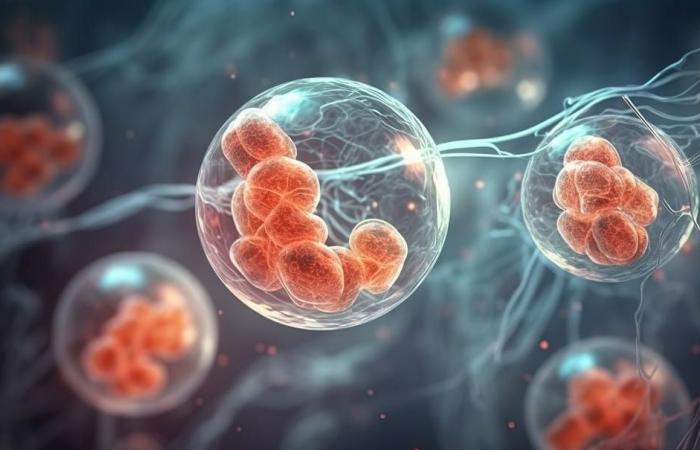Fathers have more influence than we think on pregnancy: babies act with their genes to constrain the mother.
We all know the influence of the mother on the fetus, whether psychological or physical. On the father’s side, however, nothing is less certain. However, even before the child is conceived, certain elements must be taken into account. Indeed, “the lifestyle and age of the father can influence the molecules that control genetic functions. A father can affect his direct descendants, but also future generations,” explains Dr. Joanna Kitlinska in the American Journal of Stem Cells.
But that’s not all. During pregnancy, the father’s presence does not diminish, it is even preponderant. According to a study carried out by researchers at the University of Cambridge, fetuses are equipped with a “remote control” system which allows them to control the nutritional intake provided by the mother.
A sort of “power struggle” takes place between the pregnant woman and the unborn child who seeks to maximize its growth. However, mothers can rest assured: your body is well made. To compensate for this nutritional deficit, it will condition its own needs in order to remain in good health.
-But what is the role of the progenitor in this whole process? To put it simply, this “remote control” system is made possible thanks to the copy of a gene called “Igf2”, inherited from the father by the fetus. To find out, scientists studied the functioning of the placenta, an essential organ since it facilitates the exchange of nutrients and oxygen between maternal and fetal blood. The question was therefore how this organ communicates with the mother to promote the growth of the fetus.
To find out, the researchers selectively modified the cells of the placenta of pregnant mice. They thus discovered the existence of the “lgf2” gene and its direct influence on the mother’s metabolism. This discomfort, essential to the fetus, would allow it to grow and develop normally.
“Paternal genes are ‘greedy’ and ‘selfish’. They tend to manipulate maternal resources for the benefit of the fetus, in order to make it grow and make it stronger, says Dr. Miguel Constancia, the lead co-author of This study, however, observes that if the “lgf2” gene is deleted, the mother no longer produces enough glucose (sugars) and lipids (fats). Coincidentally, the proper development of the fetus is compromised. . To the birth, these children may outgrow or be stunted.







